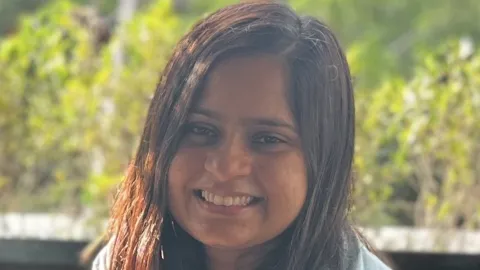
We're proud to celebrate that PhD candidate Meghna Mohandas has been awarded by UBC's Public Scholars Initiative!
During Mohandas' time at SCARP, we've celebrated many of her insights, accomplishments, and accolades already. Now, this new funding award marks the beginning of extraordinary research to come.
About the Public Scholars Initiative
UBC’s Public Scholars Initiative (PSI) supports UBC doctoral students whose research extended beyond the academy, and beyond traditional disciplinary approaches, to have a tangible impact for the public good through collaborative, action-oriented, and/or creative forms of scholarship in their dissertation work. The almost-350 Public Scholars accepted into the program over the last 9 years have sought to address complex questions and challenges of our world through collaborations with more than 200 different partners in all societal sectors in dozens of countries worldwide.
A groundbreaking undertaking, the PSI moves beyond ‘skills training’ and extracurricular experience, and reimagines PhD pathways that legitimize and integrate broader conceptions of scholarship and scholarly products within the core of doctoral education and dissertation research. By recognizing these forms and products as worthy determinants of the granting of the PhD, UBC is promoting a renewed commitment to 21st century relevance for the academy’s highest degree. The program's funding supports everything from technology development to protection of old-growth forests.
Coming from almost all faculties and disciplines, Public Scholars are united under the PSI umbrella with a passion to contribute to the public good.
On Meghna Mohandas

During her time as PhD candidate at UBC SCARP, Meghna has studied Rental Housing as Sites of 'Othering'.
In the absence of public rental housing, the private rental market addresses a key housing need of migrant communities in urban India. However, for Indigenous migrant women from the Northeast Indian borderlands and Himalayan foothills who live in the metropolitan city of Bengaluru, India, their rental houses are spaces where they experience racial harassment, sexual violence, and intrusive surveillance by landlords.
In her doctoral research, Meghna uses qualitative research methods to analyse how power dynamics within landlord-tenant relationships shape rental housing experiences of Indigenous migrant women, and how they navigate and resist their marginalisation in the private rental housing market.
Meghna Mohandas' newly funded research
"Private space as sites of ‘othering’:
Rental housing experiences of Indigenous migrant women in Bengaluru, India"
The focus on home ownership in the post-liberalization period has resulted in an absence of public and purpose built rental housing in India. Therefore, individual landlords in the private rental market are the primary source of housing for migrant communities in the country (Naik, 2019). However, there is also a lack of policies that protect the safety and privacy of tenants, particularly those from minority communities (Pati, 2022). In my doctoral research, I explore the rental housing experiences of Indigenous migrant women from the Northeast Indian borderlands and Himalayan foothills who live in metropolitan Indian cities.
For migrant women, rental houses are spaces where they experience racial harassment, sexual violence, and intrusive surveillance by landlords. Marginalization of Indigenous people in metropolitan Indian cities is primarily rooted in racism. Despite being Indian citizens, they are often dislocated from the ‘Indian’ identity due to their phenotypes (Wouters & Subba, 2013). Indigenous women in particular have been racialized, hyper-sexualized, and stereotyped as ‘loose’ and ‘sexually promiscuous’ by mainland Indians. Moral anxieties pertaining to their bodies have subjected them to ‘othering’ in urban India (McDuie-Ra, 2012). While this often translates into racialized and sexualized violence in public spaces (Puri, 2006) and their workplaces (Deori & Rajagopalan, 2018), my research focuses on how marginalization manifests inside their rental houses. I have chosen as my study site the city of Bengaluru, which is one of the top six metropolitan destinations for Indigenous migrant women in India (The Hindu, 2021).
The objectives of my research are to:
analyse how power dynamics shape rental housing experiences of Indigenous migrant women in Bengaluru,
understand how they navigate and resist their marginalization in the private rental housing market, and
formulate better policy approaches for planners to address rental housing issues of marginalized communities in India.
With the support of the Public Scholars Initiative (PSI) award, I will be producing a document with policy recommendations on formulating more inclusive tenant protection policies for migrant communities in India. I will develop this document using the empirical qualitative evidence produced through my doctoral research. This output will demonstrate how research findings through qualitative methods can produce more inclusive housing and urban policies. The primary intended audiences are research organizations, policy makers, and think-tanks in India.
Congratulations, Meghna! We can't wait for your research to take shape.
- Spotlight